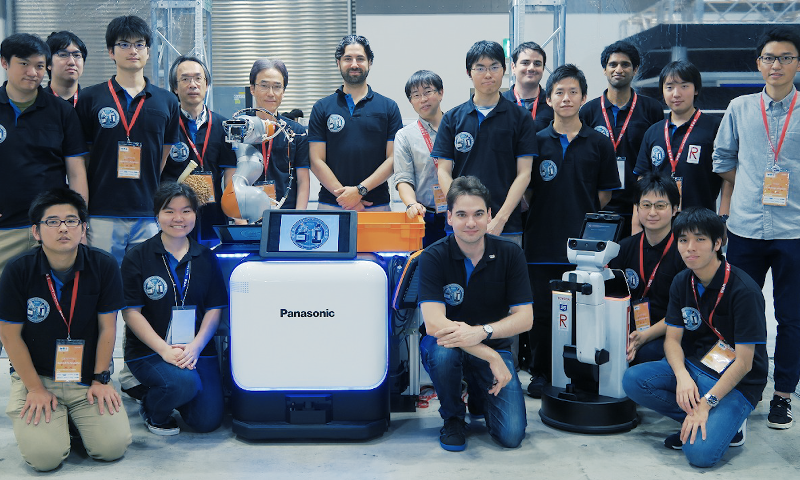
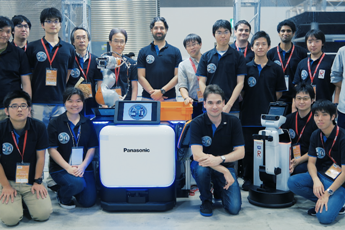
Dr. Gustavo Garcia, Nara Institute of Science and Technology, Robotics Laboratory
Dr. Lotfi El Hafi, Ritsumeikan University, Ritsumeikan Global Innovation Research Organization
Chief Engineer Dr Masaki Yamamoto, Panasonic Corporation Business Innovation Division, AI Solution Center
* Photograph taken on October 17, 2018
At the World Robot Summit (WRS) held from October 17-21, 2018, the NAIST-RITS-Panasonic Team, a partnership between Panasonic, the Nara Institute of Science and Technology, and Ritsumeikan University, achieved a remarkable first place in the Future Convenience Challenge Contest Customer Service category.
The WRS, jointly sponsored by the Ministry of Economy, Trade and Industry, and the New Energy and Industrial Technology Development Organization (NEDO), consists of four competitive categories: Manufacture, Service, Infrastructure and Disaster Response, and Junior. In the Future Convenience Store Challenge that the NAIST-RITS-Panasonic team took part in, competitors were tasked with creating a robot capable of performing a number of routine convenience store tasks, including shelf-stacking, garbage disposal, serving customers, and cleaning toilets. The contest tested both the accuracy and speed of the competing robots.
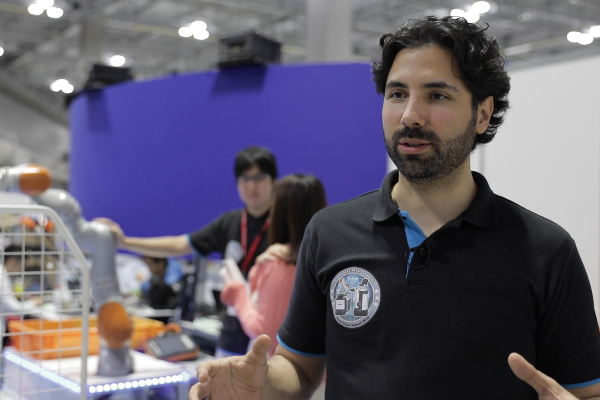
Safety specialist Dr. Garcia explores the issues relating to humans and robots coexisting, and works towards ensuring that robots do not hit humans or otherwise cause injury. He believes that partnerships between businesses - who are constantly thinking of what it is that consumers want - and research teams researching interesting, indispensable things, will allow us to develop useful new technologies.
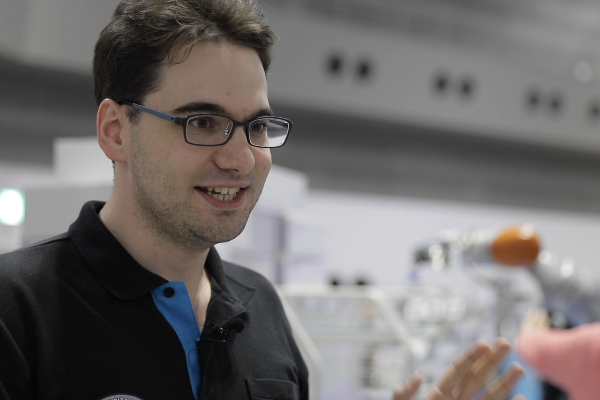
Dr. El Hafi thinks that robots, much like babies, are capable of learning things for themselves. According to him, the main challenges, and most difficult barriers to progress on this occasion were the implementation of object and voice recognition, artificial intelligence, navigation, and safety. In the academic world, many articles are written, and many theories are posited, but in the real world, things don’t work that simply. He notes that precisely because of that, taking part in this competition was a great opportunity for practical, real world testing.
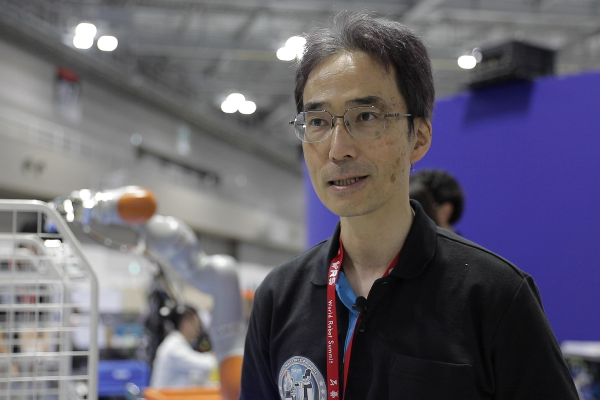
Dr. Yamamoto has faced countless issues when dealing with how robots are in contact with their environment. With the appropriate use of springs and other soft materials, he has made it so that even if a robot makes a mistake when navigating its environment, no damage will be caused. He believes that eventually AI will reach a state in which it can learn from its mistakes. While much of the innovation necessary to achieve this can be done behind closed doors, Dr. Yamamoto senses the increasing role of open source software and AI technology development.
Moving forward, a lot will hinge on whether the speedy pace of development can be maintained alongside skillful cooperation with external organizations. It is not enough for young talent to be nurtured solely within companies - collaboration is key to overcoming any issues. Working closely with organizations outside the company will be essential in producing the next generation of talent, and allowing us to respond effectively to future challenges.
Information for this report on the Future Convenience Store Challenge Project was drawn from the project report video. Please click here to watch the video.
